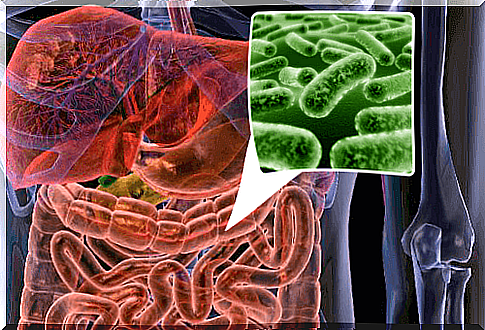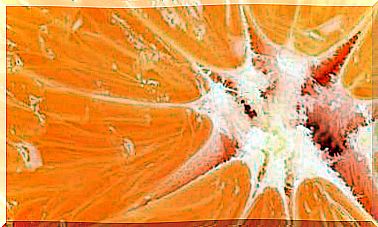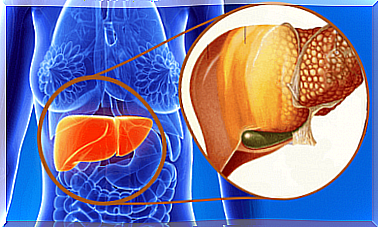7 Causes Of Intestinal Gas And Flatulence

Intestinal gas and flatulence are two of the most unpleasant and unavoidable problems for many people.
Intestinal gas is caused by the bacteria that live in your gut. However, internal problems or reactions to outside influences can make this problem worse.
Although it is not a serious health problem, some people suffer from it so often that it can become a very embarrassing problem for them. After all, when intestinal gas builds up more and more, it can develop a very unpleasant and embarrassing odor.
That is why it is essential to know what can be the causes of excess intestinal gas and flatulence, and what you can do to combat this problem.
In this article, we share the seven most common causes of intestinal gas and flatulence, so that you can take the right measures to prevent it in the future.
7 causes of intestinal gas and flatulence
1. Imbalances in the gut flora

Excess gas can be the result of imbalances in the bacteria that are supposed to protect the gut. This problem is quite common in people who have suffered from a digestive disorder, such as gastroenteritis or an infection.
Because the pH level of the stomach can change quite quickly, the body can produce more intestinal gas, which causes some bacteria to multiply.
In these cases, it is wise to consume more probiotic and prebiotic foods. These types of foods are great for getting the healthy bacteria to take over from the unhealthy ones.
2. Foods that ferment in the gut
Some of the bacteria that live in your digestive tract have the job of fermenting certain foods so that they can be more easily digested during the digestive process.
This usually occurs in the large intestine. However, sometimes bacteria can slip into the small intestine and cause the fermentation process to take place too early. Since food here is not yet fully digested, the intestinal gas will move throughout the system until you release it.
The worst part about this is that it can cause bloating, pain, and other symptoms that negatively affect your quality of life.
3. Eating too fast

People who finish their plate within minutes usually suffer from intestinal gas much more often than others. This is because by eating too quickly they also swallow a lot of air at the same time. This causes the amount of intestinal gas to increase, causing you to suffer from a bloated stomach and flatulence.
4. Excessive Consumption of Dairy Products
While some people have trouble processing dairy anyway, it can cause even more serious problems over time.
Age and regular exposure to certain factors can cause lactase levels to rise. As you may already know, lactase is the enzyme responsible for digesting dairy products.
If you regularly experience problems after eating dairy, there is a good chance that you have a lactose intolerance. In this case, the only solution is to avoid lactose in the future and opt for lactose-free dairy products instead.
5. Hormonal Changes

The hormonal changes that occur in women during menopause, along with some hormone-related illnesses, can cause large amounts of intestinal gas to build up.
Although scientists have yet to determine exactly which hormones can trigger such a reaction, the people who suffer from them experience marked changes in their digestive system.
To control symptoms and make them less likely to occur, exercise more often and drink plenty of water.
6. Gluten Sensitivity
Intestinal gas can be a very clear indication of food allergies and other disorders, such as celiac disease.
These types of autoimmune diseases can cause very serious problems absorbing food. As a result of inflammation in the lower abdomen, pain and other symptoms that interfere with proper digestion can develop.
That’s why it’s essential to diagnose these types of conditions early, especially since you’ll need to make some changes in your eating habits to keep the problem under control.
7. Accumulation of waste products

Constipation or the accumulation of waste products in the gut is also a possible cause of gas and other digestive problems. When stool remains in the large intestine, it affects the intestinal flora and causes your body to produce more intestinal gas than normal.
In addition, it becomes more difficult for your intestines to absorb the nutrients from the food you eat and to remove the waste products that your body does not need.
If you suffer from this problem, it is wise to drink more water and consume fiber and other foods that aid digestion.
Remember that the most effective way to combat intestinal gas is to improve your eating habits. This also means that you eat fewer products that promote the production of intestinal gas.
Consider the recommendations we’ve given in this article and also consult a doctor if you think it’s necessary.









